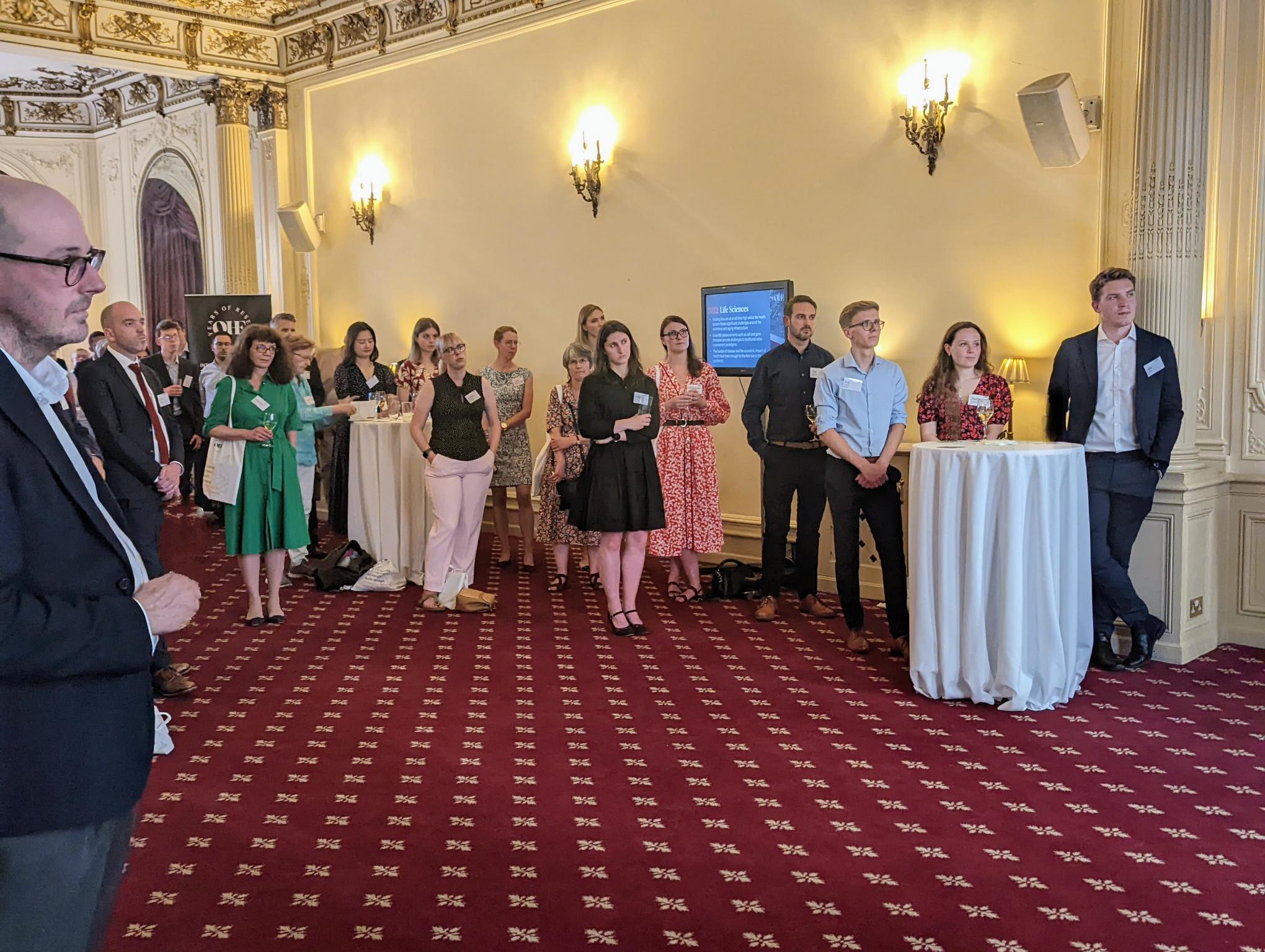Sign up to our newsletter Subscribe
Challenges and Solutions for Budget Impact Analysis of Gene Therapies

Sign up to our newsletter Subscribe

Science, technology and innovation (STI) are gaining even greater importance with globalisation and international competition. The benefits STI provides, however, also carry risks and social costs. Science policy research is important in both encouraging and managing STI. A recent OHE…

Science, technology and innovation (STI) are gaining even greater importance with globalisation and international competition. The benefits STI provides, however, also carry risks and social costs. Science policy research is important in both encouraging and managing STI. A recent OHE lunchtime seminar examined the evolution of this field and its impact on decision makers.
OHE hosted a lunchtime seminar on 6 September with Prof. Ben Martin, Professor in Science and Technology Policy Studies at SPRU1, University of Sussex. The focus was on science policy research and its impact on policy making.
Science policy research, according to Prof Martin, is ‘economic, policy, management and organisational studies of science, technology and innovation (STI) with a view to providing useful inputs to decision-makers concerned with policies for and the management of STI’. The field is important because STI is important: it is a source of progress, a major contributor to the wealth of nations, provides the basis for new goods and services and for new capabilities, and contributes to changes in the quality of life and the environment. As globalisation and international competition increase, STI is gaining even greater importance. It also carries risks, however, and social costs. For these reasons, effective policies to encourage and manage STI are essential.
Prof Martin presented the results of his extensive literature review and qualitative research on how the field of science policy research has evolved and advanced in the 50 years since its inception. He identified 20 major changes in methodology and understanding of the nature of innovation, which itself has changed over time. These include, for example, adding innovation to labour and capital to explain economic growth, and the recognition that innovation depends not just on individual actors in a system, but on the strength of the links among actors in different sectors.
Although advances in understanding STI are important, the critical questions are whether and how science policy research affects STI policy choices. Research on that issue is scarce; Prof Martin offered his thoughts based on observation and personal experience. He noted that uptake of science policy research by decision makers and has been sporadic and selective. As in the case of the relationship between science and innovation, ensuring receptiveness to policy research often depends on responding to demand, finding a persuasive ‘product champion’ and providing a product that the ‘market’ easily can digest and put to use. Prof Martin suggested that this requires some flexibility and political astuteness on the part of the researcher, who must identify clear policy needs that fit into the wider political context, be able to take advantage of opportunities as they arise and deliver results on time.
The most receptive person often is not the top policy maker, but an adroit civil servant who provides the information on which discussion and subsequent decisions are based. Moreover, what peers in science policy research might demand from one another in terms of thoroughness and sophistication may be far more than policy makers can or will use. Researchers must find a balance that maintains the integrity of the research process, but also ensures that the results are sufficiently accessible. Providing effective input into STI policy decisions, finally, requires perseverance; most interactions involve ‘knowledge creep’ rather than a ‘direct hit’.
In closing, Prof Martin called for science policy researchers to be innovative themselves. He noted that many studies of innovation still dwell on the central issues of the past decade – manufacturing, productivity and wealth creation. Manufacturing in the UK now accounts for about 15 percent of GDP; 85% is produced by services and other non-manufacturing sectors. In addition, sustainability and well-being or quality of life have risen in importance in STI policy worldwide. Science policy research needs not only to keep step with these changes, but also to produce truly innovative approaches to these important, emerging issues.
[1] Science and Technology Policy Research
Download a comprehensive account of the seminar here.
An error has occurred, please try again later.
This website uses cookies so that we can provide you with the best user experience possible. Cookie information is stored in your browser and performs functions such as recognising you when you return to our website and helping our team to understand which sections of the website you find most interesting and useful.
Strictly Necessary Cookie should be enabled at all times so that we can save your preferences for cookie settings.
If you disable this cookie, we will not be able to save your preferences. This means that every time you visit this website you will need to enable or disable cookies again.
This website uses Google Analytics to collect anonymous information such as the number of visitors to the site, and the most popular pages.
Keeping this cookie enabled helps us to improve our website.
Please enable Strictly Necessary Cookies first so that we can save your preferences!
